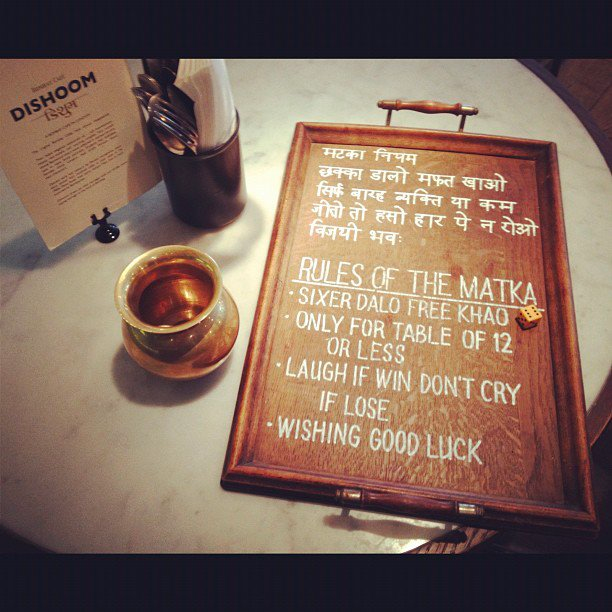Dishoom's Secret Keyring: How are they making money by giving meals away for free?
- Emily
- Jan 12, 2024
- 3 min read
Did you know that Dishoom offer diners the chance to eat for free? The catch? You simply need to roll a number 6 on a dice…
Me neither! At least not until last week, when I took a trip to the new Dishoom, my favourite Indian restaurant, at Battersea.
I went with a couple of friends who let us in on a little secret…. If you are the lucky owner of a Dishoom keyring (or a ‘matka’ as they call it), then they offer you the chance to roll a dice at the end of your meal. If you roll a 6, the entire table gets their meal - including drinks - for free. Yep - for free!!
Spoiler alert - we rolled a 5 (boo!) However, my friends had been lucky enough to win this twice before - on one occasion writing off a whole £400 bill for a group of them.
There ARE some catches. First of all, you need to know about the whole thing (but now you do - you’re welcome). Then, you need to get hold of one of the keyrings. And finally, there are some terms and conditions - you can only use it before 6pm Monday to Friday.
It got us wondering though… how can it be commercially viable for Dishoom to write off a sixth of their meals?
In my opinion, it comes down to the power of marketing and human psychology. I’ve recently written an article about Cialdini’s 7 principles of persuasion. And I can see a few of these principles in play here.
Let’s take a look.
1. Scarcity
The keyrings are only given away sparingly. You need to ask nicely…. And even then, they’re likely to turn you down or only ‘have one left’.
This creates the ‘scarcity’ effect, which makes something seem far more valuable.
(Fun fact - each restaurant has their own design, so you can even ‘collect’ them if you go often enough).
2. Unity
When you are lucky enough to get hold of one, you suddenly feel like part of a secret club.
And it IS kind of secret….Dishoom don’t mention it anywhere on their website, and despite being a big Dishoom fan, I’d never heard about it until I saw the video of my friends celebrating their win on Instagram.
So the fact that it’s a little unknown and exclusive, puts the ‘unity’ effect into play. How many other restaurants are you in a club for? This creates an element of loyalty. When choosing a restaurant, you’re now more likely to pick Dishoom.
3. The thrill of the gamble
Although not one of Cialdini’s principles, there is some interesting psychology around gambling that comes into play. The chance of having your meal for free means that people are likely to gamble and spend a bit more upfront in case they do roll a six.
You also get a dopamine hit regardless of whether you win or lose. I can confirm that - it was thrilling waiting to see what the dice would turn up! This makes the whole experience more enjoyable and memorable even if you don’t win.

4. Reciprocity
If you are lucky enough to win, you’re likely to experience the ‘reciprocity’ effect. As humans, we like to pay back our debts, so chances are that you’ll return in the future for another meal. (And I’d be willing to bet the waiters love the tips on tables that win!)
Plus, what are the chances that you’re going to share the story of this win with your friends, or share it on social media? We all know the power of free ‘word of mouth’ marketing….

All of these elements mean that anybody with a keyring is:
More likely to choose Dishoom when picking a restaurant
More likely to spend more overall with them
More likely to recommend Dishoom to their friends
And people who do win are:
Likely to return to Dishoom again
Super satisfied with their experience
Even MORE LIKELY to tell their friends
I think it’s a fantastic initiative that improves customer experience and drives loyalty. Plus, it’s a great way for the restaurant to fill more tables at off-peak times.
I’d love to know Dishoom’s commercial analysis on the scheme - but my bet would be that they are making more money than the writing off in the long term. An amazing example of the commercial team trusting the marketing team, and a lesson that all pubs and restaurants can learn from.
Let me know in the comments if you manage to get hold of a keyring. And what’s your non-negotiable item that you have to order from the menu? For me, it has to be the black daal….




Comments